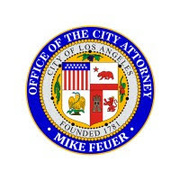Description:
Definition:Under general supervision or general direction, performs various professional legal services and provides assistance and advice to all City departments, City Council, and various boards, committees, and commissions; prepares and presents pleadings and discoveries before Federal and State courts and various governmental agencies; represents the City in municipal law matters; and performs related duties, as assigned.
Supervision Received and Exercised
Receives general supervision or general direction from assigned supervisory or management staff. Exercises direct or general supervision over assigned legal support staff.
Class Characteristics
Deputy City Attorney I: This is the entry-level class in the Deputy City Attorney series. Initially under close supervision, incumbents with basic experience learn City systems, operations, practices, and procedures. As experience is gained, assignments become more varied and are performed with greater independence. Assignments may vary with the skill and training of the incumbent. Positions at this level usually perform most of the duties required of the positions at the II-level, but are not expected to function at the same skill level and usually exercise less independent discretion and judgment in matters related to work procedures and methods.
Deputy City Attorney II: This is the journey-level class in the Deputy City Attorney series. Positions at this level are distinguished from the I-level by the performance of the full range of duties as assigned, working independently, and exercising judgment and initiative. Positions at this level receive only occasional instruction or assistance as new or unusual situations arise and are fully aware of the operating procedures and policies of the work unit. Work is normally reviewed upon completion and for overall results.
Positions in the Deputy City Attorney class series are flexibly staffed and positions at the II-level are normally filled by advancement from the I-level after gaining the knowledge, skill, and experience which meet the qualifications for and after demonstrating the ability to perform the work of the higher-level class.
This class is distinguished from the Assistant City Attorney in that the latter is assigned more difficult and complex assignments, has broad discretionary and decision-making responsibility, and performs higher level City administration duties and complex legal work.
Essential and Marginal Duties
Examples of Typical Job Functions (Illustrative Only)
Management reserves the right to add, modify, change, or rescind the work assignments of different positions and to make reasonable accommodations so that qualified employees can perform the essential functions of the job.
- Prepares and processes pleadings and discoveries; appears in municipal, Federal, and State courts.
- Negotiates, prepares, drafts, and reviews acquisitions, dispositions, and development agreements, interagency cooperative agreements, contracts, deeds, leases, ordinances, resolutions, and other legal documents and instruments related to redevelopment and housing projects, City-owned real estate, public works and community services projects, and planning and land use matters.
- Performs legal research and prepares written and oral opinions on various legal issues for the City Council, all City departments, and various boards, commissions, and committees.
- Receives, reviews, and processes various reports and records, including invoices for legal fees, contracts, legal pleadings, medical records, certificates of insurance, resolutions, ordinances, correspondences, court cases, new or proposed legislation, and labor agreements.
- Serves as a liaison for an assigned functional area with other City departments, divisions, and outside agencies.
- Assists Department Heads and staff in establishing operational policies by developing and applying legal points and procedures; recommends changes to department policies and procedures to meet changing legal requirements.
- Meets and negotiates with outside parties in matters arising out of claims, property transactions, and other City business.
- Attends and participates in professional group meetings and committees; stays abreast of new trends and innovations in the field of municipal law; researches emerging products and enhancements and their applicability to City needs.
- Monitors changes in regulations and technology that may affect the assigned function; implements policy and procedural changes after approval.
- Maintains accurate files, databases, and records; prepares a variety of written reports, memoranda, and correspondence.
- Performs other related duties as assigned.
Qualifications Some knowledge, skills, and abilities may be performed by positions at the entry (I) level in a learning capacity:
Knowledge of:
- Legal principles and procedures, including civil and administrative laws and procedures involving housing, zoning controls, and land use matters.
- Federal, State, and local laws statutes and ordinances with emphasis on civil, contract, and labor law.
- Federal, State, and local trial and appeal procedures and methods of case preparation and presentation.
- Legal principles, issues, and practices related to municipal government functions, including specific government operations and relevant legal issues.
- Court procedures and rules of evidence.
- Methods of legal research, including computer research.
- Business letter writing and the standard format for reports and correspondence.
- Principles and practices of data collection and report preparation.
- Business mathematics and basic statistical techniques.
- Record-keeping principles and procedures.
- Techniques for providing a high level of customer service by effectively dealing with the public, vendors, contractors, and City staff.
- The structure and content of the English language, including the meaning and spelling of words, rules of composition, and grammar.
- Modern equipment and communication tools used for business functions and program, project, and task coordination.
- Computers and software programs (e.g., Microsoft software packages) to conduct, compile, and/or generate documentation.
Ability to:
- Provide sound legal advice to the City Council, commissions, committees, and departmental staff.
- Present legal information and advice clearly and persuasively in public sessions.
- Determine alternative legal and administrative approaches to solving problems.
- Analyze and prepare a wide variety of legal documents.
- Conduct research on legal problems and prepare sound legal opinions.
- Prepare and present cases, pleadings, and discoveries in court.
- Prepare accurate and effective reports, policies, procedures, and other written materials.
- Conduct effective negotiations and effectively represent the City and the department in meetings with governmental agencies, businesses, professionals, and regulatory and legislative organizations.
- Analyze problems, identify alternative solutions, project consequences of proposed actions, and implement recommendations in support of goals.
- Establish and maintain a variety of filing, record-keeping, and tracking systems.
- Understand, interpret, and apply all pertinent laws, codes, regulations, policies and procedures, and standards relevant to work performed.
- Effectively represent the department and the City in meetings with individuals; governmental agencies; community groups; various business, professional, and regulatory organizations.
- Learn and understand the organization and operation of the City and of outside agencies as necessary to assume assigned responsibilities.
- Independently organize work, set priorities, meet critical deadlines, and follow-up on assignments.
- Effectively use computer systems, software applications, and modern business equipment to perform a variety of work tasks.
- Communicate clearly and concisely, both orally and in writing, using appropriate English grammar and syntax.
- Use tact, initiative, prudence, and independent judgment within general policy, procedural, and legal guidelines.
- Establish, maintain, and foster positive and effective working relationships with those contacted in the course of work.
Minimum Qualifications:
Education and Experience:
Any combination of training and experience that would provide the required knowledge, skills, and abilities is qualifying. A typical way to obtain the required qualifications would be:
Equivalent to a Juris Doctorate degree from an accredited school of law.
Deputy City Attorney I: One (1) year of experience in the practice of civil or municipal law.
Deputy City Attorney II: Three (3) years of increasingly responsible professional legal experience, at least one (1) of which must have been in California in an area of law applicable to municipal government operations.
Licenses and Certifications:
- Possession of, or the ability to obtain, a valid Class C California driver's license upon appointm
Similar Jobs






